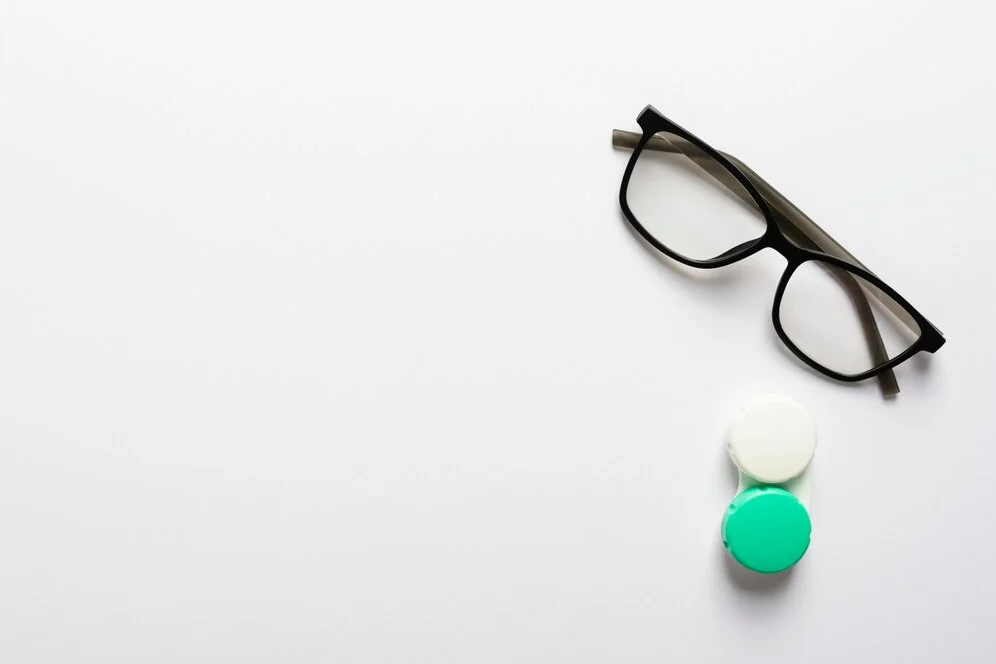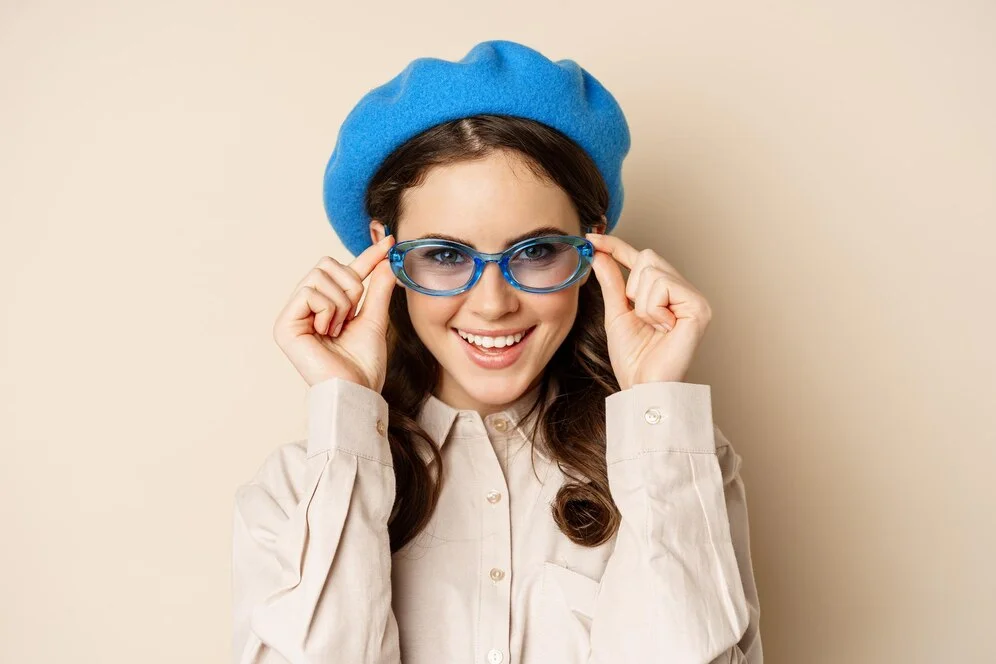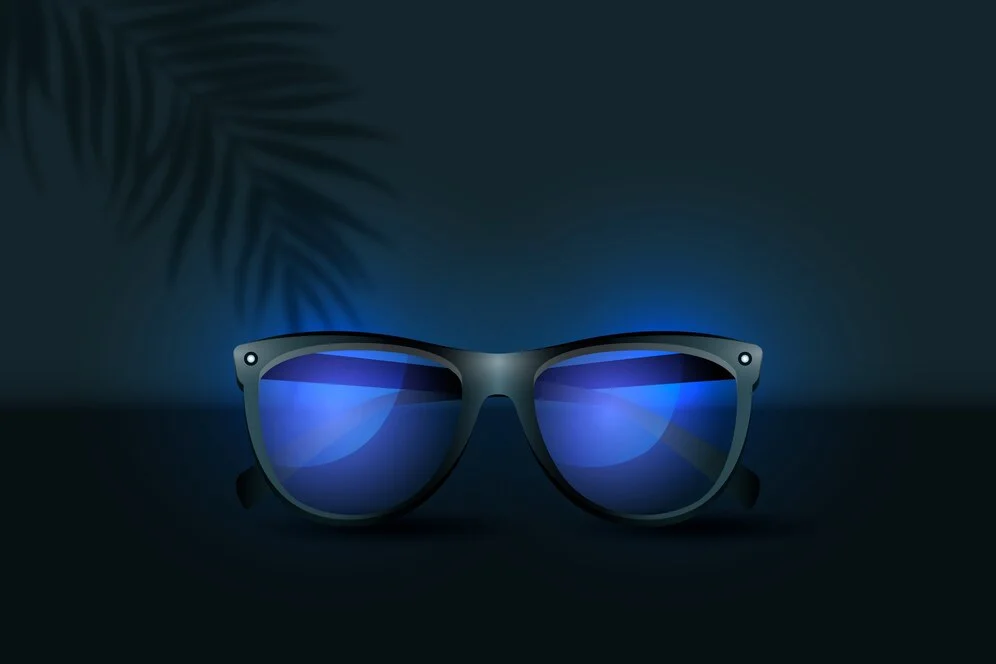Blue Light Glasses are widely promoted for reducing digital eye strain, but do they really work? Learn the science, benefits, and limitations from experts.
In today’s digital world, we spend more time than ever staring at screens—whether it’s our smartphones, laptops, tablets, or televisions. While technology has made life easier, excessive screen time has raised concerns about eye health. One of the most debated topics is the impact of blue light emitted by digital screens and whether Blue Light Glasses can help protect our eyes.
Are these glasses truly effective, or is it just another trend? Let’s explore the science behind blue light, its effects, and whether investing in Blue Light Glasses is a smart choice.

What Is Blue Light and Why Is It a Concern?
Understanding Blue Light
- Blue light is a part of the visible light spectrum with short wavelengths and high energy.
- It is emitted by the sun as well as digital devices like smartphones, computers, and LED lights.
- While natural blue light is beneficial for maintaining our sleep-wake cycle, excessive exposure to artificial blue light can raise concerns.
Potential Effects of Blue Light on Eye Health
- Digital Eye Strain – Prolonged screen exposure can cause symptoms like dryness, irritation, and fatigue.
- Sleep Disruptions – Blue light exposure in the evening can suppress melatonin production, making it harder to fall asleep.
- Potential Retinal Damage – Some studies suggest prolonged exposure to blue light may contribute to retinal damage over time, though research is ongoing.
How Do Blue Light Glasses Work?
Mechanism of Blue Light Glasses
- Blue Light Glasses are designed with special lenses that filter or block blue light from digital screens.
- Some lenses have a yellow tint to neutralize blue light, while others have an anti-reflective coating.
- The goal is to reduce eye strain and minimize the potential long-term effects of excessive blue light exposure.
Types of Blue Light Glasses
- Clear Lens Glasses – Filters a small percentage of blue light while maintaining a natural appearance.
- Yellow-Tinted Glasses – Blocks a higher percentage of blue light, often used for gaming or prolonged screen use.
- Prescription Blue Light Glasses – Available for individuals needing vision correction along with blue light protection.
Do Blue Light Glasses Really Work?
What Research Says
- Studies indicate that while Blue Light Glasses can help reduce digital eye strain, their effectiveness in preventing retinal damage is still being debated.
- Some experts argue that eye strain is caused more by prolonged screen use rather than blue light itself.
- The American Academy of Ophthalmology (AAO) states that blue light is not the primary cause of eye strain but acknowledges that these glasses may help some individuals.
Who Can Benefit from Blue Light Glasses?
- Individuals with high screen time – Office workers, students, and gamers may experience reduced strain.
- People with sleep disturbances – Wearing blue light-blocking glasses in the evening may improve sleep quality.
- Those sensitive to bright screens – Some people find relief from headaches and eye discomfort when using them.
Other Ways to Protect Your Eyes from Blue Light
While Blue Light Glasses can be helpful, there are additional ways to reduce eye strain and maintain healthy vision.
1. Follow the 20-20-20 Rule
- Every 20 minutes, look at something 20 feet away for at least 20 seconds.
- This helps relax eye muscles and reduce strain from prolonged screen use.
2. Adjust Screen Settings
- Reduce screen brightness and increase text size for easier readability.
- Enable “Night Mode” or “Blue Light Filter” on devices to minimize blue light exposure.
3. Maintain Proper Screen Distance
- Keep screens at least an arm’s length away from your eyes.
- Position the screen slightly below eye level to reduce strain on the neck and eyes.
4. Use Artificial Tears
- Digital screens reduce blinking, leading to dryness.
- Lubricating eye drops can help keep eyes moist and comfortable.
5. Limit Screen Time Before Bed
- Avoid screens at least 1-2 hours before sleeping.
- This helps regulate melatonin production and improves sleep quality.
Common Myths About Blue Light Glasses
1. Blue Light Glasses Completely Block Blue Light
- Most blue light lenses filter only a portion of blue light, not 100%.
- The percentage of blocked light varies by brand and lens type.
2. Blue Light is the Main Cause of Eye Strain
- Eye strain is primarily caused by prolonged screen use and improper screen ergonomics.
- Frequent breaks and screen adjustments can be more effective than Blue Light Glasses alone.
3. Everyone Needs Blue Light Glasses
- Not everyone experiences discomfort from blue light exposure.
- Individuals with minimal screen use may not require them.

Frequently Asked Questions (FAQs)
1. Are Blue Light Glasses Safe to Wear All Day?
Yes, they are safe for daily use, but if you do not experience digital eye strain, you may not need them constantly.
2. Do Blue Light Glasses Help with Headaches?
Some people find relief from headaches caused by digital eye strain, but results vary based on individual sensitivity.
3. Can Blue Light Glasses Improve Sleep?
Wearing them in the evening may help reduce melatonin suppression, potentially improving sleep quality.
4. Should Children Wear Blue Light Glasses?
If children spend significant time on screens, blue light lenses may help reduce eye fatigue, but screen breaks are still essential.
5. Do Regular Prescription Glasses Block Blue Light?
Standard glasses do not filter blue light unless they have a specific blue light-blocking coating.
Final Thoughts: Are Blue Light Glasses the Ultimate Eye Protection?
Blue Light Glasses have gained popularity as a potential solution for reducing digital eye strain, but their effectiveness varies among individuals. While they may help alleviate discomfort from prolonged screen exposure, they are not a complete solution for eye health.
The best approach is to combine Blue Light Glasses with healthy screen habits, such as following the 20-20-20 rule, adjusting screen brightness, and limiting screen time before bed.
If you are experiencing persistent eye discomfort, consult an eye care professional to determine the best approach for protecting your vision.

